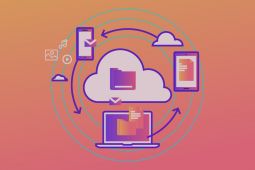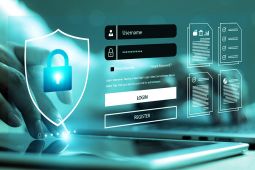I support my child in the development and maintenance of his positive online reputation.
Online Privacy and Internet Ethics

It’s not gold or oil - the most valuable commodity today is our personal information. With so much of our personal information online and it being accessible by law enforcement and many marketers, we are the ones in control over our data.
Privacy is a state where an individual can work on his information in seclusion, with the objective of revealing their identity or information only to selected individuals. Privacy also means staying in a state of anonymity. With the internet pervading people’s lives where a vast amount of information can be created, stored, accessed, and retrieved, the need for internet privacy has never been greater where the user is in control of what information about oneself he wished to disclose or not.
Internet Privacy and Ethics
The first thing that comes to mind when we talk about the internet is the use of social networking sites, emails, and the surfing of various other websites. Internet privacy comes up when online users provide their personal information on the websites. Issues regarding internet privacy arise from the following:
- The user of online shopping sites is made to input their credit card numbers.
- Whether third parties should be allowed to store or read emails without informed consent.
- Whether or not third parties should be allowed to track the visitors on a website.
- Whether the sites that gather personally identifiable information from users should store or share it.
- Internet privacy can be considered as part of computer privacy and internet privacy deals with protecting data and avoidance of disclosure of unauthorized access to the information which is collected and stored on the websites. The real challenge is the effective storage of data while maintaining the confidentiality of information.
Is Website tracking by ISP an ethical practice?
The objective of internet privacy is not to maintain complete anonymity of the user's identity, it intends to maintain a controlled disclosure of one’s personal information. Internet service providers (ISP) keep track of a user’s IP address each time the user uses the web. The ISP’s have to record the IP address and the user details to keep in a record of the user in case of any illegal practices conducted on the internet. The disclosure of these forms of information is acceptable. This is important because this is the means by which websites track the users’ internet activities.
Is it right to allow users to use the Internet with a fake or an anonymous identity?
Some social media sites have allowed users to fake their profiles to access their services. Some might consider this good practice because they are free to discuss, opine and post any comment while keeping their true identity anonymous. Moreover, such conduct does not require the users to disclose their identities. This raises issues in research ethics pertaining to the privacy of research subjects and informed consent before using any research. While providing open platforms for discussions, the Internet is ironically becoming a stage where fake people can voice false opinions and foster fallacies.
Does internet privacy imply that information posted online is confidential?
What we mentioned before does not mean that there is a threat of information misuse on all websites. There are banking sites that have robust protection features for securing the information you provide online. To protect one’s information, one has to be careful of what to provide and what not to provide, to examine where you are providing your information, and to know how his information is being handled.
There is no doubt that Internet privacy is important in the event of personal information got disclosed, but it requires the user to be cautious, as privacy sometimes poses a threat to Internet ethics.
@2x.png)

















